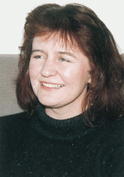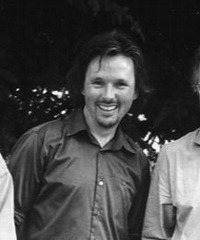Bristol. Very frequently in scientific work a particular department, centre or place becomes pivotal –associated with an important transition in thinking or with exciting new developments and breakthroughs. Such prominence can be quite transient, sometimes lasting for only for a few years, dependent on a particular combination of people and the Zeitgeist. The people and the Zeitgeist move on but nostalgia remains about these high points and heydays. In European social psychology and particularly British social psychology, Bristol University and the social psychological research conducted in the Psychology Department at Bristol in the 1970s and early 1980s has this reputation. These were the years in which Henri Tajfel was the Professor of Social Psychology. During these years a genuinely different European social psychology emerged first as a manifesto worked out in the early 1970s by a group of scholars across Europe with Moscovici in Paris and Tajfel in Bristol as prime movers. European social psychology was to be a more politically engaged and critical discipline and these ideals were realised in the stream of research from Bristol in the 1970s and 1980s on social identity theory and the study of intergroup relations and group process. Social identity theory remains one of the core theoretical frameworks of social psychology and still inspires a great deal of research today. Tajfel was a larger than life character and one of the most important intellectuals in the history of social psychology. He was someone with the energy and passion (and connections across Europe and in the USA) needed to gather together a highly productive group of students, research fellows and co-workers and inspire them to be creative. Everyone who was anyone in social psychology seemed to pass through Bristol in those years. Tajfel entertained a constant stream of eminent visitors from the States and elsewhere and as a PhD student at Bristol in the late 70s, my no doubt rather rosy memory is of large informal dinners at Tajfel's house which turned into impromptu seminars, with Tajfel presiding, goading and challenging and enjoying the cut and thrust as he turned over idea after idea for critical examination. The Bristol research group was not an easy environment, particularly for women, yet many of the current generation of British social psychologists were educated there and owe it an enormous debt. It created an academic network that persisted after Tajfel died in 1981 and the group dispersed. Tajfel included among the first generation of his students, for instance, Michael Billig, John Turner, Howard Giles, Rupert Brown, Richard Eiser, Colin Fraser and Glynis Breakwell and these academics in turn educated the next generation of social psychology researchers. In this way the memory of a place and the conditions which created an intellectual framework carried on. Written by: Margaret Wetherell 

Gender refers to an individual's experience of themselves as being men or women, boys or girls (and what this implies for them). It is usually clearly distinguished from the biological or physiological concept of sex. The concept of gender identity is shaped by the influences of many significant social factors during maturation, in addition to the basic physiological distinctions between the sexes. It includes internalisation of ideas about what are appropriate social roles/behaviours for the different genders. Gender identity and sexual identity can be different. For example, a transsexual may have the physiological apparatus of a male, but may feel that they are really a woman. Sometimes a gender reassignment operation is chosen, to bring the physiological aspects in line with the experienced sense of gender. 

Post-modernism and French social theory (1974 to present day). During the 1970s and early 1980s, new intellectual influences such as the writings of French philosophers and social theorists Jean-François Lyotard, Michel Foucault, Roland Barthès and Jacques Derrida began to influence psychology. In general, these authors can be seen as sharing a rejection of the central assumptions of the modern world (i.e. modernism): First the assumption that modern society will become more democratic just because of our growing ability rationally and objectively to understand society's best interests Second the assumption that scientists and social theorists hold a privileged viewpoint because they are assumed not to operate with local interests or bias. Both of these assumptions suggest the possibility of disinterested knowledge, universal truths and social progress. The late twentieth century writings of Michel Foucault (1929-1984) and Jean François Lyotard called these assumptions into question. Foucault's work has argued that knowledge and power are always intertwined and that the social sciences, rather than empowering human actors, have made humans into objects of inquiry and subjected them to knowledge that is given authority by the claims of science. Similarly Lyotard has argued that social theory has always imposed meaning on historical events rather than providing the means by which it is possible to understand the empirical significance of events. Taken together such ideas are called 'post-modernist' because they follow (post-date) modernism, take forward some ideas and replace others. Post-modern theories reject the idea of social and intellectual progress and argue that we must accept three consequences of this: First, the possibility that history has no meaning or purpose, and the abandonment of the idea that we can know what is or is not true (this idea is called realism) and instead recognising that knowledge is socially constructed. Second, we must accept that science can never create and test theories according to universal scientific principles because there is no unitary reality from which such principles can be established Third, that we live in a fragmented world with multiple realities. As a result we must be sceptical about claims to authority based on certainty of knowledge or science. The clearest expressions of a post-modern approach to psychology can be found in social constructionism and discourse analysis. Written by: Course Team. 


